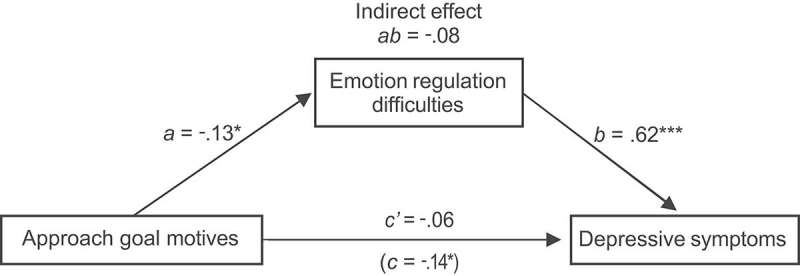This article has been reviewed according to Science X's editorial process and policies. Editors have highlighted the following attributes while ensuring the content's credibility:
fact-checked
trusted source
proofread
Goal motives: Are you chasing your dreams or running from your fears?

A new Edith Cowan University (ECU) study, the first of its kind, has shown that when it comes to pursuing personal goals and protecting your mental well-being it pays to understand your underlying motives.
ECU researchers Bridget Robson and Professor Joanne Dickson surveyed 210 participants to investigate the relationship between underlying goal motives, emotion regulation, and anxiety and depression.
The research examined two types of motives that underpin personal goal pursuit—'avoidance-oriented' (to avoid threatening or feared outcomes), and 'approach-oriented' (to strive toward desirable and pleasant outcomes.)
It found that those who pursue goals with underlying motives that were fear based (avoidance), were more likely to experience emotion regulation difficulties, which in turn increased symptoms of depression and anxiety.
Awareness is key
Professor Dickson said personal awareness of what drives us to achieve the things that matter is a critical step in protecting mental health.
"It's also important to understand that an approach-oriented motive may underpin an avoidance goal, and vice versa," she said.
"For example, an underlying avoidance motive, to avoid social rejection, may stimulate adoption of the approach goal behavior, to appear sociable and talk to several people at a party."
"Or, alternatively, an approach goal to do well in an exam may be driven by the motive to avoid feeling a failure or upsetting one's parents."
"Having awareness of underlying motives that drive personal goals, potentially gives people an opportunity to reflect and to create choices, such as adapting or reframing personal goals, motives or thinking, if necessary."
Reframing avoidance motives
Researcher Bridget Robson said while avoidance may be beneficial in the short term, for example, getting out of the way of imminent physical danger—such as a flood, engaging in avoidance more long-term is associated with increased anxiety.
"Avoidance motivation typically increases negative emotions, such as fear and anxiety when the threatening scenario seems imminent," she said.
"Reframing avoidance motives may be a useful strategy in protecting against difficulties in emotional regulation and anxiety."
"For example, fear of failing an exam, might be reframed as striving towards passing."
Professor Dickson said this study furthers an understanding of the nature of depression and anxiety from both a motivation and emotion regulation perspective.
"This is the first study to explore underlying approach and avoidance motivations and emotion regulation difficulties in relation to depression and anxiety," she said.
"Although we found avoidance motives increased emotion regulation difficulties which in turn exacerbated depression and anxiety, approach motives did not lead to emotion regulation difficulties or depression and anxiety, suggesting that approach motives that drive personal goal pursuit seem to play a protective role in maintaining mental well-being."
The findings have implications for self-management and ongoing therapy developments, as well as mental health promotion programs.
The paper was published in the journal Australian Psychologist.
More information: Bridget L. Robson et al, Goal motives in depression and anxiety: the mediating role of emotion regulation difficulties, Australian Psychologist (2023). DOI: 10.1080/00050067.2022.2162809



















